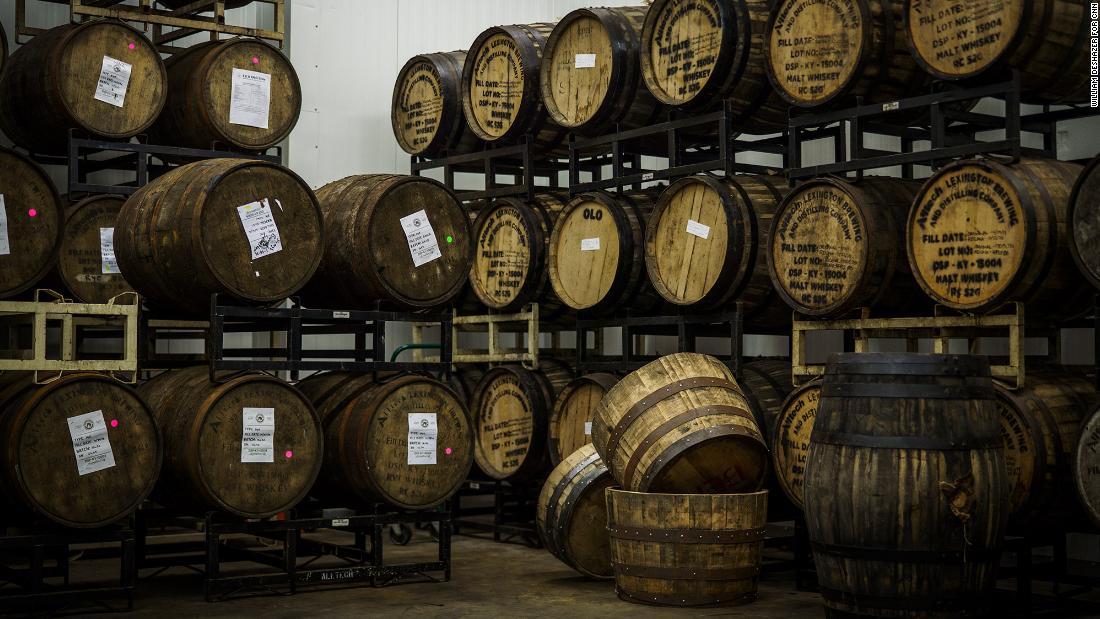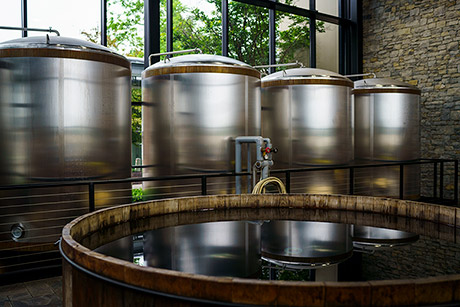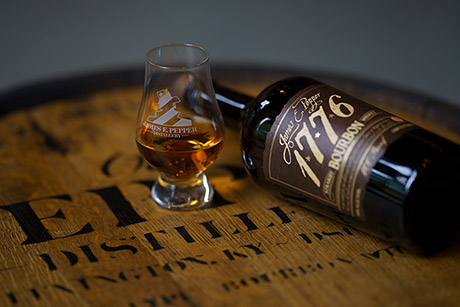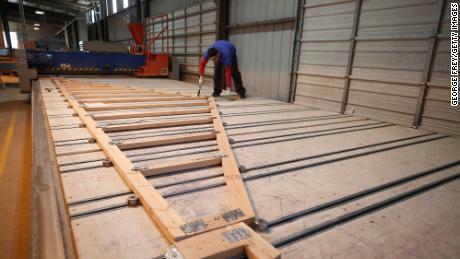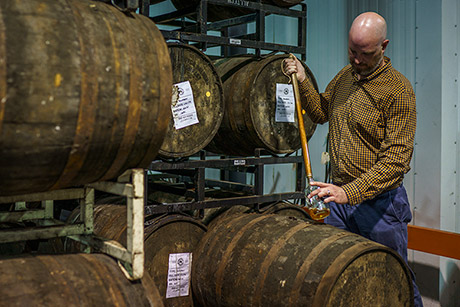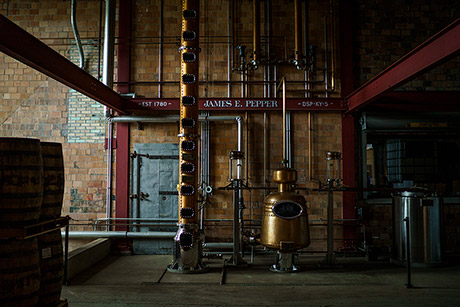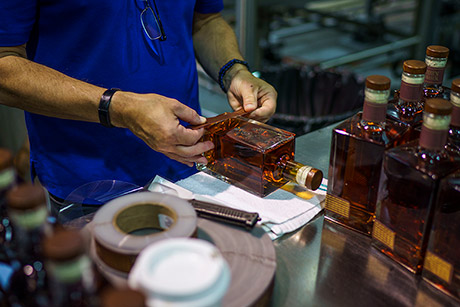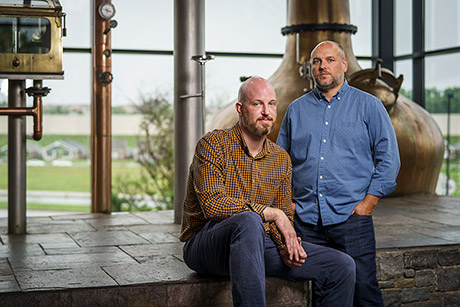Biden has not lifted Trump’s steel and aluminum tariffs, so neither has Europe stopped its retaliatory tariffs on US products such as whiskey
Owner Amir Peay had big dreams for selling James E. Pepper in Europe when he started producing these bottles four years ago. He rented space in a warehouse in Europe, setting up a whole new distribution system. But then Trump started a series of trade fights with the European Union, which retaliated by slapping a 25% tariff on American whiskey, making Peay’s bottles much more expensive for European drinkers.
“We’re still on death row,” Peay said.
To be considered straight bourbon, whiskey has to be aged for a minimum of two years. James E. Pepper spirits usually take longer.
It’s one of the oldest brands of whiskey in the United States, starting production during the Revolutionary War and is intertwined with American history. The Old Fashioned cocktail was created in Colonel James E. Pepper’s honor and the distiller was instrumental in the passage of the Bottled in Bond Act, one of the first federal consumer protection laws.
The brand and distillery was abandoned for decades before Peay started distilling under the name again in 2008. He rebuilt the operation on the original land, reopening in 2017, and named the flagship label “1776.”
“When we fill barrels of whiskey today here we’re making plans for what we do with them in four years. And we made plans and projections based on stocks put away for Europe that are not going to come to fruition,” added Peay, an entrepreneur and history buff who resurrected the James E. Pepper brand after discovering its rich past.
Distilling is a long-term process. It starts with grinding the grain, which is then fermented on the upper level of the distillery, Peay explained as he dipped his finger into the vat for a taste one day this week.
“This one’s been cooking for about 42 hours and will be stilled tomorrow,” he said.
It will then be stored in an off-site building, known as rickhouse, to age, meaning today’s barrels will likely land on shelves in 2025. But Peay has no idea if there will be demand for James E. Pepper whiskey in European bars and restaurants by the time it does.
“There’s no guarantee we ever get that momentum back. Once you lose that spot on a shelf, the consumer has tried something else,” he said.
Collateral damage in Trump’s trade war
Targeting whiskey had another political benefit — it caused pain for industries in Kentucky, home state of Senate Republican leader Mitch McConnell. And Harley Davidson is based in Wisconsin, which in 2018 was represented by former Rep. Paul Ryan, then serving as House speaker.
Biden leaves Trump’s tariffs in place
“We’re optimistic the Biden administration is doing all they can to resolve these complex trade issues,” said Chris Swonger, president and CEO of the Distilled Spirits Council.
A whiskey ‘bonanza’
Brown-Forman, which makes Jack Daniel’s and is the biggest exporter of American whiskey, was hit extremely hard, bearing roughly 15% of the country’s entire tariff bill from Europe and the United Kingdom, CEO Lawson Whiting said on an earnings call in March.
Still, the industry is doing very well overall.
“The tariffs hit hard, but domestic growth and interest in bourbon is just through the roof and has sustained,” said Fred Minnick, the author of “Bourbon: The Rise, Fall and Rebirth of an American Whiskey.”
While distillers are facing higher taxes abroad, those at home have been reduced. At the end of last year, Congress made permanent a tax cut first put in place temporarily by the 2017 tax reform legislation. It reduces the federal excise tax to $2.70 a gallon from $13.50 for the first 100,000 gallons produced — making a big difference, especially for small craft distillers.
“Last year was a bonanza year,” said Conor Lennon, an economist at the University of Louisville — but, he added: “That’s not an argument in favor of the tariffs. They would love to be selling here and there.”
A lost opportunity
The Town Branch Distillery, named for the limestone water creek running through Lexington that’s a key ingredient in Kentucky whiskey, could easily grow its exports abroad if it weren’t for the tariffs.
Its parent company, Alltech, owns a distillery in Dublin and the Lexington location could take advantage of its distribution network to expand its international business.
But the tariffs were put on before growing exports were a major part of Town Branch’s plan.
“It hurt us because we couldn’t expand with our sister operation,” said Alan Kennedy, the distiller and blender.
For now, Town Branch is also seeing growth at home and as the only Lexington stop on the Kentucky Bourbon Trail — and the only one with a brewery also on site — director of spirits Rob Krass is optimistic the next year will be just as strong as the country opens up.
“We didn’t lose on Europe. We lost the opportunity on Europe,” Krass said. “But we’re set up to go whenever the time is right.”
CNN’s Brett Roegiers contributed to this report.
![]()


